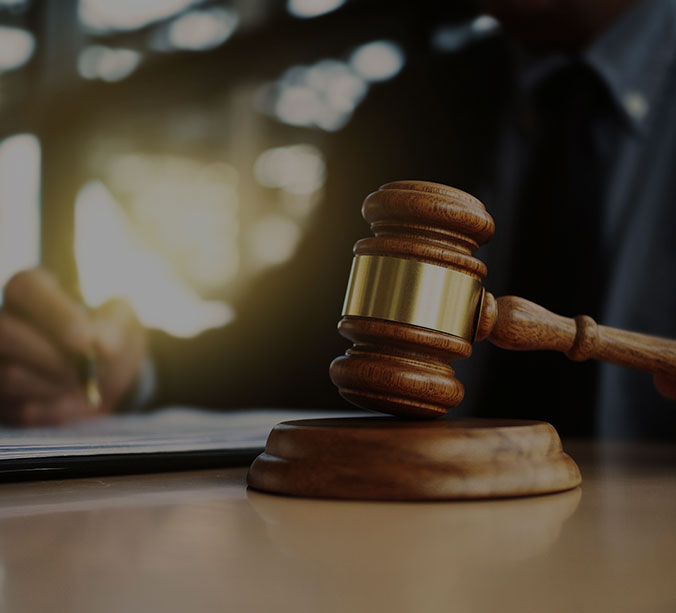
As Philadelphia continues to grapple with concerns over crime and police presence, knowing your rights during a police stop has never been more important. Whether you live in the city or are just passing through a “high-crime” neighborhood, understanding what officers can—and can’t—legally do can help you protect yourself and avoid unlawful arrests.
Philadelphia’s Crime Landscape in 2025
While violent crime has fluctuated year to year, concerns about shootings, drug activity, and public safety remain widespread. According to a 2025 Pew poll, nearly 70% of Philly residents still list crime as their top concern. Neighborhoods like Nicetown-Tioga, Allegheny West, and parts of North Philly are frequently labeled “high-crime zones” by police—labels that can influence how aggressively officers approach stops and searches.
But just being in one of these areas doesn’t mean you give up your constitutional rights.
What Does “High-Crime Area” Mean for Your Rights?
Police often cite a “high-crime area” as part of their justification to stop or question someone. But under Pennsylvania and federal law, your presence in such an area is not enough on its own to justify a stop.
- Pennsylvania Supreme Court: Being in a high-crime area, even while talking to a known drug user, is not reasonable suspicion.
- U.S. Supreme Court (Illinois v. Wardlow, 2000): If you flee upon seeing police in a high-crime area, that may be enough for a lawful stop.
In other words, police need more than just your location—they need a specific reason tied to your behavior or other observable facts.
Your Rights During a Stop in Philadelphia
Whether walking through your neighborhood or passing through a high-crime area, it’s critical to understand what the law says about police stops—and how to protect yourself. The Constitution guarantees certain rights, including your Miranda rights, and knowing them can prevent unlawful arrests, illegal searches, and violations of your civil liberties.
1. You Have the Right to Remain Silent
Under the Fifth Amendment, you are never required to answer police questions beyond providing your name, address, and date of birth if asked. You do not have to explain where you’re going, where you’ve been, or what you’re doing.
If you wish to exercise this right, say clearly: “I am exercising my right to remain silent.”
Don’t lie to the police, but you’re not obligated to offer any information beyond basic ID.
2. You Have the Right to Refuse a Search
The Fourth Amendment protects you from unreasonable searches and seizures. That means:
Police cannot search you, your belongings, or your vehicle unless they have:
- A valid search warrant
- Probable cause that a crime has occurred
- Or your voluntary consent
You can refuse a search by saying: “I do not consent to any searches.”
Be firm but polite. Refusing a search does not give police the right to detain or arrest you without cause.
3. You Have the Right to an Attorney
You have the right to legal counsel if you are detained or arrested—even for something minor. As soon as it’s clear you’re not free to leave, invoke your Sixth Amendment right: “I want to speak with a lawyer.”
Then stop talking. Don’t answer questions, try to explain, or sign anything until your attorney is present. Anything you say after asking for a lawyer can still be used against you unless your rights are respected.
What Else Should You Do During a Stop?
- Stay calm and don’t argue, run, or resist—even if the stop feels unfair.
- Keep your hands visible, preferably at your sides or on the steering wheel if in a car.
- Ask: “Am I free to leave?” If the answer is yes, calmly walk away. If the answer is no, stay silent and wait for your lawyer.
Understanding your rights can make all the difference in a stressful police interaction. If your rights were violated during a stop, contact a qualified Philadelphia criminal defense lawyer right away
How Has Stop-and-Frisk Changed in Philadelphia?
In response to a class-action lawsuit, the Philadelphia Police Department revised its stop-and-frisk policy in 2022. Under the new guidelines, officers patrolling certain districts—including the 2nd, 12th, 14th, 17th, 22nd, and 24th—must give verbal warnings before stopping or frisking individuals for minor infractions like carrying an open container of alcohol.
The city has also partnered with the Pennsylvania State Police in a targeted effort known as Operation Trigger Lock to increase patrols in areas with high rates of gun violence. While these changes aim to reduce crime, they have sparked concerns about civil liberties—especially when stops are made without clear legal justification or probable cause.
What If You’re Stopped Outside of Philadelphia?
Even outside city limits, your rights remain protected under Pennsylvania law. Police in suburban counties like Delaware, Montgomery, and Bucks Counties must still follow constitutional standards. This means they need reasonable suspicion to legally stop you and probable cause to search or arrest you. You must only identify yourself—you do not have to answer other questions.
However, some suburban departments may be less familiar with constitutional stop procedures or more prone to overstepping. If you’re searched without consent or detained without cause, any evidence gathered may be thrown out in court. If this happens, document everything you can, including badge numbers, locations, and witness info, and immediately contact a defense attorney.
Stopped Down the Shore in New Jersey
Vacationing in New Jersey doesn’t strip away your rights, but the rules differ slightly. Like Pennsylvania, New Jersey police need reasonable suspicion to stop you and probable cause to make an arrest. However, NJ courts are stricter when reviewing traffic stops and warrantless searches.
If stopped in a shore town like Wildwood, Ocean City, Sea Isle or eslewhere:
- Remain calm and polite
- Ask if you’re free to leave
- Don’t consent to a search unless absolutely certain it’s lawful
Unlawful stops and overreaches can be challenged in court with help from a New Jersey criminal defense lawyer, especially if charges result from an improper or unconstitutional stop.
What to Do If You Believe Your Rights Were Violated
If you think police violated your rights—whether through an unlawful stop, illegal search, or use of force—**document everything immediately**. Your notes can make or break your defense or civil rights case.
- Write Down All Details: Record the officers’ names and badge numbers (if visible), the time and location of the stop, what was said or done, and the circumstances surrounding the incident. Include descriptions of any vehicles, license plate numbers, and the specific actions taken by officers.
- Get Witness Information: If others were present, ask for their names and contact details. Their statements can corroborate your account if needed in court or during an investigation.
- Preserve Any Evidence: If you recorded the encounter or have photos, save them securely. Do not post them online before consulting an attorney.
- File a Complaint: Every law enforcement agency has an Internal Affairs division or oversight process. Filing a formal complaint can trigger an investigation and create a record of misconduct that may support your defense or a potential lawsuit.
- Contact a Lawyer Immediately: Do not attempt to resolve a rights violation alone. An experienced criminal defense attorney can evaluate your situation, explain your options, and protect your rights during criminal or civil proceedings.
At Fienman Defense, we understand the stakes when your constitutional rights are ignored. Whether you were stopped in Philadelphia or anywhere else in Pennsylvania or New Jersey, we’ll help you seek justice.
You might need to file a formal complaint to jumpstart your case, so research the process before embarking.
Get Help from a Philadelphia Defense Lawyer
If you or a loved one is arrested and charged with any crime after being stopped by police in Philadelphia or the surrounding region, contact a lawyer ASAP. An experienced criminal defense attorney can identify problems with the stop or search, negotiate with the prosecution to arrange a plea, and advocate for the best possible result in and out of court.
Call Fienman Defense at (215) 839-9529 or contact us online for a free and confidential consultation.
View All Blogs